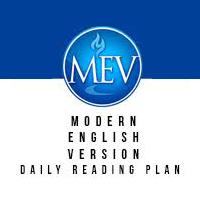1 Now the names of those on the sealed agreement were:
Nehemiah, the magistrate, the son of Hakaliah,
and Zedekiah. 2 Next were Seraiah, Azariah, Jeremiah,
3 Pashhur, Amariah, Malkijah,
4 Hattush, Shebaniah, Malluk,
5 Harim, Meremoth, Obadiah,
6 Daniel, Ginnethon, Baruch,
7 Meshullam, Abijah, Mijamin,
8 Maaziah, Bilgai, and Shemaiah.
These were the priests.
9 The Levites were:
Jeshua the son of Azaniah, Binnui of the sons of Henadad, and Kadmiel,
10 along with their relatives Shebaniah,
Hodiah, Kelita, Pelaiah, Hanan,
11 Mika, Rehob, Hashabiah,
12 Zakkur, Sherebiah, Shebaniah,
13 Hodiah, Bani, and Beninu.
14 The leaders of the people were:
Parosh, Pahath-Moab, Elam, Zattu, Bani,
15 Bunni, Azgad, Bebai,
16 Adonijah, Bigvai, Adin,
17 Ater, Hezekiah, Azzur,
18 Hodiah, Hashum, Bezai,
19 Hariph, Anathoth, Nebai,
20 Magpiash, Meshullam, Hezir,
21 Meshezabel, Zadok, Jaddua,
22 Pelatiah, Hanan, Anaiah,
23 Hoshea, Hananiah, Hasshub,
24 Hallohesh, Pilha, Shobek,
25 Rehum, Hashabnah, Maaseiah,
26 Ahiah, Hanan, Anan,
27 Malluk, Harim, and Baanah.
28 The remainder of the people, the priests, the Levites, the gatekeepers, the singers, the temple servants, and all those who on the basis of the Law of God separated themselves from the people of the lands—their wives, their sons, and their daughters, that is, every one capable of knowledge and understanding— 29 have decisively joined in with their countrymen and their nobles, and obligated themselves—by both a curse and an oath—to walk in the Law of God, which was given by Moses the servant of God, and to observe and do all the commandments of the Lord who is our Lord, along with His judgments and His statutes 30 so that we will not give our daughters to the people of the land nor take their daughters for our sons.
31 If the people of the land bring merchandise or any grain on the Sabbath day to sell, we will not buy from them on the Sabbath or a holy day. We will also renounce the seventh year harvest and the full payment of every debt.
32 We also establish for ourselves the ordinance to collect from ourselves annually one-third of a shekel for the service of the house of our God: 33 for the showbread, the continual grain offering, the continual burnt offering, the Sabbaths, the New Moons, the appointed feasts, the holy things, and the sin offerings to make an atonement for Israel, as well as for all the work of the house of our God.
34 Also, we cast lots to determine the duty of the supply of wood that the priests, the Levites, and the people—according to the houses of our fathers, being set by annually appointed times—might bring to the house of our God, in order to burn it on the altar of the Lord our God, as it is written in the Law; 35 and, likewise, for the annual bringing of the first fruits of our ground and the first fruits of all fruit of all trees to the house of the Lord; 36 and for bringing to the priests who are ministering at the house of God, the firstborn of our sons and livestock, as it is written in the Law, plus the firstborn of our herds and flocks.
37 Moreover, the first of our fresh dough, our contributions, the fruit of every tree, and the new wine and oil we will bring to the priests at the chambers of the house of our God, but the tithe of our crops we will bring to the Levites, since they themselves receive the tithes in all our agricultural cities. 38 There must be a priest, a descendant of Aaron, with the Levites when they are collecting tithes, and the Levites will offer a tenth of the tithes to the house of our God, for the chambers of the storehouse. 39 Both the children of Israel and the Levites should bring the contribution of the grain, new wine, and the fresh oil to the chambers because the vessels of the sanctuary and the ministering priests, the gatekeepers, and the singers are there.
We resolve not to forsake the house of our God.
Chapter 11
1 Now the rulers of the people lived at Jerusalem, so the rest of the people cast lots in order to bring one out of ten to stay in Jerusalem, the holy city, while the other nine remained in other cities. 2 The people blessed all the men who volunteered to dwell in Jerusalem.
3 Now these are the leaders of the provinces who lived in Jerusalem (though in the cities of Judah every one lived on his own property within their cities): Israel, the priests, the Levites, the temple servants, and the descendants of Solomon’s servants. 4 Some of the sons of Judah and Benjamin lived in Jerusalem.
Those from Judah were:
Athaiah the son of Uzziah, the son of Zechariah, the son of Amariah, the son of Shephatiah, the son of Mahalalel—the descendants of Perez, 5 and Maaseiah the son of Baruch, the son of Kol-Hozeh, the son of Hazaiah, the son of Adaiah, the son of Joiarib, the son of Zechariah, the son of Shelah. 6 All the descendants of Perez who lived in Jerusalem were four hundred and sixty-eight valiant men.
7 These are the sons of Benjamin:
Sallu the son of Meshullam, the son of Joed, the son of Pedaiah, the son of Kolaiah, the son of Maaseiah, the son of Ithiel, the son of Jeshaiah, 8 and after him Gabbai and Sallai, totaling nine hundred and twenty-eight. 9 Joel, the son of Zikri, was their overseer, and Judah the son of Hassenuah was second to him over the city.
10 Of the priests there were:
Jedaiah the son of Joiarib and Jakin; 11 Seraiah the son of Hilkiah, the son of Meshullam, the son of Zadok, the son of Meraioth, the son of Ahitub, was a ruler of the house of God. 12 Their relatives performing the work of the house were eight hundred and twenty-two. There was also Adaiah the son of Jeroham, the son of Pelaliah, the son of Amzi, the son of Zechariah, the son of Pashhur, the son of Malkijah, 13 plus his relatives who were chiefs of the fathers’ houses were two hundred and forty-two; and Amashsai the son of Azarel, the son of Ahzai, the son of Meshillemoth, the son of Immer, 14 and their brothers, mighty men of valor, were one hundred and twenty-eight. Their overseer was Zabdiel, the son of Haggedolim.
15 From the Levites there were:
Shemaiah the son of Hasshub, the son of Azrikam, the son of Hashabiah, the son of Bunni; 16 plus Shabbethai and Jozabad, who as leaders of the Levites had oversight of the outside work of the house of God. 17 Mattaniah the son of Mika, the son of Zabdi, the son of Asaph, was the first to begin the thanksgiving at prayer, Bakbukiah was the second out of his relatives, and then Abda the son of Shammua, the son of Galal, the son of Jeduthun. 18 All the Levites in the holy city were two hundred and eighty-four.
19 Moreover, the gatekeepers,
Akkub, Talmon, and their relatives who kept watch at the gates, were one hundred and seventy-two.
20 The rest of Israel, the priests, and the Levites were in all the cities of Judah, every one tending to his own inheritance.
21 But the temple servants lived in Ophel, and Ziha and Gishpa were over them.
22 The overseer of the Levites in Jerusalem was Uzzi the son of Bani, the son of Hashabiah, the son of Mattaniah, the son of Mika. Some of the sons of Asaph were the singers attending to the work of the house of God, 23 for the king’s regulation about them made their unity a daily issue.
24 Pethahiah the son of Meshezabel, of the sons of Zerah the son of Judah, was the king’s assistant in all matters concerning the people.
25 For the villages located by their fields, some of the people of Judah lived at Kiriath Arba and its villages, others at Dibon and its villages, or at Jekabzeel and its villages, 26 as well as at Jeshua, at Moladah, and at Beth Pelet, 27 and at Hazar Shual, and at Beersheba and its villages, 28 and at Ziklag, at Mekonah and its villages, 29 and at En Rimmon, at Zorah, at Jarmuth, 30 Zanoah, Adullam and their villages, at Lachish and its fields, and at Azekah and its villages. So they lived from Beersheba as far as the Valley of Hinnom.
31 Some of the Benjamites settled from Geba onward, at Mikmash, Aija, and Bethel and their villages, 32 at Anathoth, Nob, Ananiah, 33 Hazor, Ramah, Gittaim, 34 Hadid, Zeboim, Neballat, 35 Lod, and Ono, the valley of craftsmen.
36 From the Levites, some divisions in Judah belonged to Benjamin.
Acts 4:1–22
1 As they spoke to the people, the priests, the captain of the temple, and the Sadducees came upon them, 2 being greatly troubled because they taught the people and preached through Jesus the resurrection from the dead. 3 And they seized them and put them in custody until the next day, for it was already evening. 4 But many of those who heard the word believed, and the number of the men grew to about five thousand.
5 On the next day their rulers and elders and scribes 6 were assembled at Jerusalem with Annas the high priest, and Caiaphas, and John and Alexander, and all who were of the family of the high priest. 7 When they had stood them in the midst, they asked, “By what power or by what name have you done this?”
8 Then Peter, filled with the Holy Spirit, said to them, “Rulers of the people and elders of Israel: 9 If we today are being examined concerning a good deed done to a crippled man, how this man has been healed, 10 be it known to you all, and to all the people of Israel, that by the name of Jesus Christ of Nazareth, whom you crucified, whom God raised from the dead, by Him this man stands before you whole. 11 He is
‘the stone you builders rejected,
which has become the cornerstone.’
12 There is no salvation in any other, for there is no other name under heaven given among men by which we must be saved.” 13 When they saw the boldness of Peter and John and perceived that they were illiterate and uneducated men, they marveled. And they recognized that they had been with Jesus. 14 But seeing the man who was healed standing with them, they had nothing to say against it. 15 So when they had commanded them to go outside of the Sanhedrin, they conferred among themselves, 16 saying, “What shall we do to these men? For, indeed, that an acknowledged miracle has been done through them is revealed to all who dwell in Jerusalem, and we cannot deny it. 17 But lest it spread further among the people, let us threaten them that they no longer speak to anyone in this name.”
18 Then they called them and commanded them not to speak or teach at all in the name of Jesus. 19 But Peter and John answered them, “Whether it is right in the sight of God to listen to you more than to God, you judge. 20 For we cannot help but declare what we have seen and heard.”
21 When they had further threatened them, they let them go, finding no way to punish them, because of the people. For all glorified God for what was done, 22 for the man on whom this miracle of healing was performed was over forty years old.

